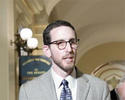In explaining his shift away from Maoist economics, Deng Xiao Ping, chairman of the Chinese Communist Party, described his market-oriented changes as “socialism with Chinese characteristics.” Today, American businesses, as well as the media and academic establishments that serve them, increasingly embrace what can best be described as “Chinese capitalism with American characteristics.” read more »
Policy
How America Turned Into the EU
For many liberal Americans, the European Union is the perfect elite model: a non-elected, highly credentialed bureaucracy that embraces and seeks to enforce the environmental, social and cultural zeitgeist of the urban upper classes. It is, as the establishment Council on Foreign Relations puts it, a “model for regional integration”. read more »
- Login to post comments
How Los Angeles Descended Into Neo-Feudalism and How to Fix It
For most of the last century, Los Angeles loomed as the next great American city, a burgeoning paradise riding the shift of world power west. It seemed posed to leave New York and London in the dust, the engines of growth inexorable. There was the city's dominance of the entertainment and aerospace industries, which incited migration from both the rest of the country and abroad, and all this promise was symbolized by a spread of suburban single-family houses that seemed to embody the ideal American dreamscape. read more »
- Login to post comments
Red States Need to Be Citizen Friendly
My latest column is now online in Governing magazine. It’s a very tough look at northern red state governments and how they have not delivered economic results. I specifically mention Kansas and Indiana. read more »
- Login to post comments
Senator Scott Wiener (D) Introduces Bill That Would Further Increase Energy Costs for Californians
California Senator Wiener has taken Governor Newsom’s recent Executive order to ban the sale of gas-powered vehicles and hydraulic fracturing one step further with his introduction of SB 467 to obliterate the California economy. The bill is so broad and ambiguous that the results of its passage would lead to a total production ban in California and increase energy costs upon those that can least afford it. read more »
- Login to post comments
America's First Infantada
The national consciousness regresses to the level of the toddler, casting everything in stark terms of good and bad.
We are here to guide public opinion, not to discuss it.
Emperor Napoleon Bonaparte, 1804
By the calendar, the American republic is mature, but it’s becoming rapidly ever more infantilized. In everything from schooling to Covid-19 to race and global warming, we seem to be looking for simple, easy answers that a toddler might appreciate but healthy adults know are too pat to be true. read more »
- Login to post comments
No Silver Bullet on Energy Issues
With some energy literacy, folks may realize that there may not be a silver bullet answer for all of humanity’s energy needs. Whether you ultimately drive an internal combustion engine vehicle or an EV, and get exposed to electricity from wind, solar, coal, natural gas, nuclear, or hydro generation, will depend on you or your community’s wealth.
Most people in the world want both prosperity and nature, not nature without prosperity. They are just confused about how to achieve both. read more »
- Login to post comments
The Looming Democrat Civil War
The Democratic Party has always been a loose confederation of outsiders — poor farmers, union members, populists, European immigrants and southern segregationists. As the actor Will Rogers said in 1924: “I am not a member of any organised political party. I am a Democrat.” Yet despite being unwieldy, it was often effective, and usually beat the more homogeneous country-club-led Republicans. read more »
- Login to post comments
Is It Western Europe's Turn for a Brain Drain?
While much of the focus is on the Covid-19 pandemic, the geography of Europe’s knowledge intensive jobs is being reshaped. For the fifth year, the European Centre for Entrepreneurship and Policy Reform (ECEPR) has in collaboration with Nordic Capital, a leading Nordic private equity firm, mapped the locations of knowledge intensive jobs of Europe. The brain business jobs index examines jobs in four knowledge-intensive industries—the tech sector, information and communications technology (ICT), advanced services, and creative professions. read more »
- Login to post comments
Trust the Science: The Blue State Surge is Real
For months the conventional wisdom among Democrats, amplified by their obliging claque in the media, was that lockdowns played an essential role in containing COVID-19. The great heroes, in addition to Anthony Fauci, were hardline governors like Michigan’s Gretchen Whitmer, California’s Gavin Newsom and, most of all, New York’s Andrew Cuomo. read more »






















